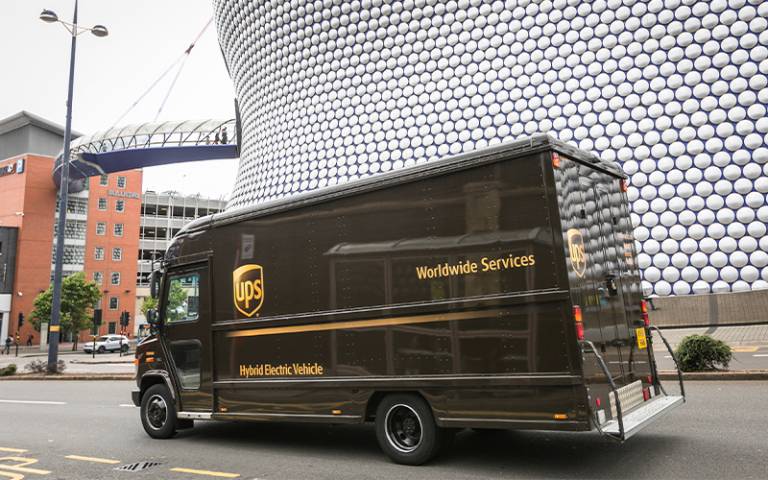
Written by Peter Harris, International Sustainability Director at UPS
The climate emergency means that Britain needs to do more to tackle carbon emissions. And, in London, we’re also acutely aware of the need to help clean up the air. It’s becoming clear that using diesel powered delivery vehicles in urban environments just isn’t good enough anymore. We need to transform our transportation and delivery systems.
Businesses like ours play a central role in developing and deploying clean new transport technologies. Sometimes, of course, we’re driven by changing regulation. But we’re also driven by our customers, who increasingly expect cleaner delivery, and by our staff, who want to work for an organisation that is leading the way in responding to global challenges like climate change, and local ones like air pollution. If we’re honest, most customers are more likely to use a clean delivery option that’s no more expensive and, in the long term, logistics companies will need to get cleaner if they want to stay in the market.
That’s why we like to be ahead of regulation, rather than driven by it, and we see green innovation as the route to ensuring that we can serve our customers better and more cleanly. Ours was one of the first fleets of modern electric delivery vans in London. We’re developing new e-assist quad cycles for clean urban last mile delivery. We’re also looking to further electrify our urban delivery fleet and at how to decarbonise longer distance heavy duty trucks, which battery technologies cannot yet deliver. We’re a global company, but Britain has been a great place to pioneer our low emissions technologies, thanks to its rich network of clean technology start-ups and entrepreneurs.
But a long term transition like the one global economies need to undertake to achieve deep decarbonisation needs government support. No single company can tackle the complex infrastructure deployment and technology development challenges, while still offering a competitive service to consumers. Our attempts to roll out clean, electric vehicles rely on government supporting the infrastructure in which we can operate. So far we’ve had to be very creative in upgrading our charging network. Regulation is important too, as it helps to accelerate innovative solutions and provide a level playing field for our industry.
The government also plays a role in enabling a thriving ecosystem of green innovators. UPS itself needs partners to drive change. Our core business is logistics so we seek partnerships with suppliers who are experts in their field, to experiment with cleaner transportation technologies.
Bringing these different needs together, enabling co-ordinated planning, regulation and support for innovation will drive clean growth and ensure the UK capitalises on the industrial opportunities from the low carbon transition. This joined up approach is important, because innovation isn’t just about people in lab coats. It’s about real-world testing, experimentation and problem solving.
 Close
Close

